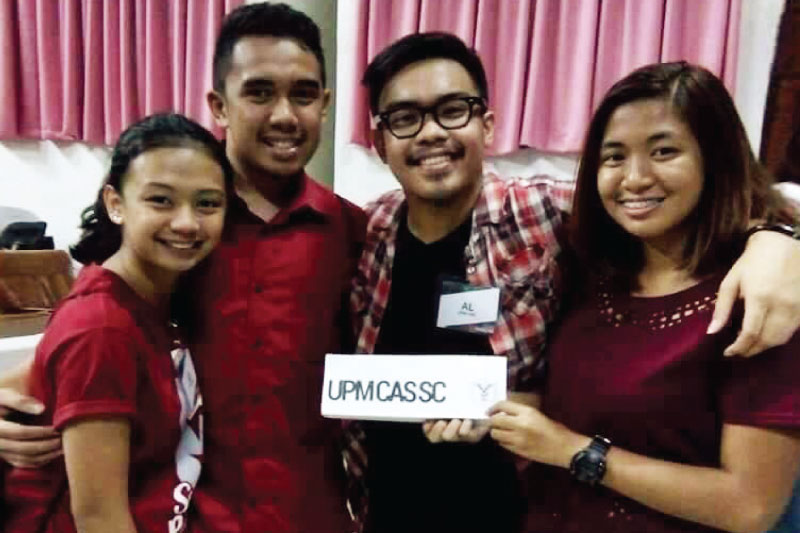Jo, iskolar, activist

Jo Lapira (left) with author Al Omaga (third from left) and other members of the UP Manila College of Arts and Sciences Student Council during the UP General Assembly of Student Councils last January 2017.
She was one of the most prominent figures of activism at the University of the Philippines Manila. When conversations tackled women’s issues and gender emancipation, she surely came to mind.
Jo was a grim and determined activist of GABRIELA Youth, a2nd the university hallways bore witness to her hard work in relentlessly holding RTR discussions and eagerly enjoining students to come and join snake rallies. She was almost never absent in local demonstrations, shouting chants with her signature pitch, “Abante, babae, palaban, militante!”
To her fellow Iskolars ng Bayan, Jo was also seen as a selfless student leader. She served in the UP Manila University Student Council as College of Arts and Sciences representative. One of her banner calls during her run was uniting UP Manila’s seven colleges in the struggle for free education. Her brand of leadership is one that is built around the essence of the Oblation – a selfless offering of one’s self.
A year after her term, her legacy, as well as of that of many others before her, continues.
She spent six years in college – a year in her first course, BA Development Studies, and five years studying BS Biochemistry. Just a year more and she could have graduated, but she chose the road less traveled – she became a full-time activist earlier this year and went on to traverse the mountains of Southern Tagalog to integrate with and organize farmers in August.
When news broke out of an operation conducted by the Philippine National Police (PNP) and the Armed Forces of the Philippines (AFP) in Nasugbu, Batangas on November 28, 2017 that resulted in the brutal deaths of 15 people including young women, everyone who was close to Jo collectively trembled.
After the confirmation that one of the slain victims was indeed Jo Lapira, an unconditional need to find answers to questions filled social media.
While the PNP and AFP claimed and labeled the incident as an “encounter” or “clash” between the police and military operative and members of the New People’s Army (NPA), GABRIELA and other human rights groups believe otherwise. They have called on the Commission on Human Rights to immediately conduct an independent investigation to seek justice.
To add insult to injury, the AFP even surfaced a photo of one of the dead bodies, which was believed to be Jo’s. The said photo of a dead body wrapped in bloody blankets was contrary to the AFP’s claim that the victim was brought to a hospital for immediate treatment. This is besides the fact that the AFP released the cadaver’s identity to the public without the family’s consent.
Despite the continuing call for justice, Jo’s death is proof that the revolution is alive – that people are actually putting their lives on the line to pave the way for an alternative society that is free from exploitation. But then again, her death is a reminder of how far the state and its forces can go to defend the status quo.
Her comrades may grieve and mourn, but only to rise up again, take up her body, and continue the fight.
The military ended her life in November, but she will live on in the hearts of her friends, family, and comrades who saw how she held true to the fact that a woman’s place is in the struggle.
Editor’s note: A youth leader and activist from UP Manila, Al Omaga worked with Jo Lapira as a comrade and councilmate during their term in the UP Manila College of Arts and Sciences Student Council.
- Latest
- Trending




























